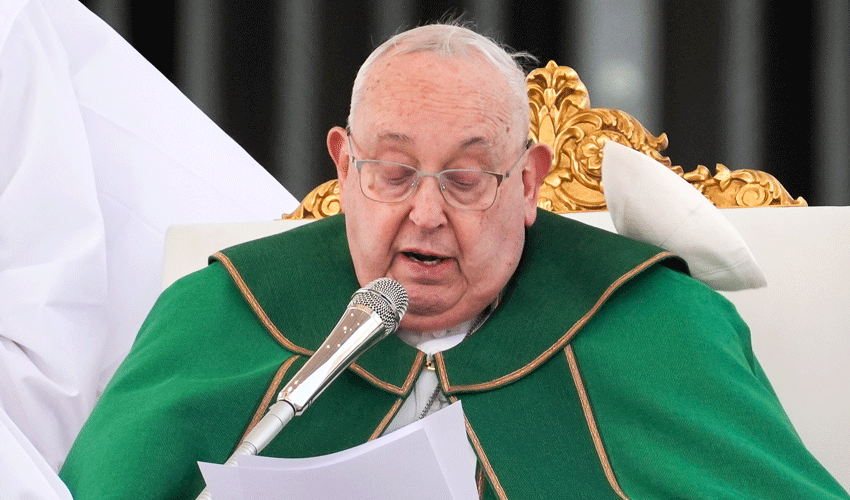In a major escalation of diplomatic measures, Pakistan has decided to exercise its right to suspend all bilateral agreements with India following the alleged false flag operation in Pahalgam in India-held Kashmir as well as India's unilateral announcement to suspend the Indus Waters Treaty.
The decisions were made during an emergency session of the National Security Committee (NSC), chaired by Prime Minister Shehbaz Sharif and attended by the services chiefs and the Chairman of the Joint Chiefs of Staff Committee.
According to an official statement, the NSC reviewed the situation arising after India's false flag operation in Pahalgam and expressed deep concern over the deteriorating regional situation after the attack. The committee condemned the loss of innocent lives, including tourists, and accused India of exploiting the tragedy for political purposes.
Closure of Wagah Border, suspension of diplomatic ties
The committee recommended the immediate closure of the Wagah border. Although it will remain open for entry and exit until April 30, all Indian citizens, excluding Sikh pilgrims, have been ordered to leave Pakistan within 48 hours. Additionally, Pakistan has suspended visas issued to Indian nationals under the South Asian Association for Regional Cooperation (SAARC).
Pakistan has also reduced the number of staff members at the Indian High Commission staff in Islamabad to 30.
Also Read: India will pursue Pahalgam attackers to 'ends of earth': Modi
Defense, naval, and air advisors posted at the Indian High Commission in Islamabad were declared "persona non grata" and ordered to leave the country. Pakistan has also closed its airspace to all Indian aircraft and suspended all trade activities with India, including those routed through third-party countries.
Rejection of Indus Waters Treaty suspension
Pakistan strongly rejected India’s suspension of the 1960 Indus Waters Treaty, terming it a binding international agreement brokered by the World Bank. “There is no clause in the treaty that allows unilateral suspension,” the statement read.
Also Read: India suspends Indus Waters Treaty, expels Pakistanis, closes Attari post
The NSC emphasized that any attempt to block Pakistan’s water share would be considered an act of war. It declared water as a vital national interest and vowed to raise the issue at global platforms, reiterating Pakistan’s resolve to defend its rights under international law.
Simla Accord suspended
In a rare and bold move, the National Security Committee announced the suspension of the Simla Agreement, which has served as the diplomatic framework for peace and conflict resolution between the two nuclear neighbours since 1972.
Reaffirming Two-Nation Theory
In its concluding remarks, the NSC said India’s recent actions had validated the Two-Nation Theory -- the ideological basis for the creation of Pakistan. “India's aggression and discriminatory policies have once again proven the fundamental need for a separate homeland for Muslims,” the committee declared.
The National Security Committee (NSC) issued a strong response to India’s recent provocative statements, calling them baseless and irresponsible.
In its official statement, the committee said that India is making unsuccessful attempts to link the Pahalgam attack to Pakistan without any evidence. It emphasized that Pakistan has already presented irrefutable proof of Indian state-sponsored terrorism.
Also Read: What is Indus Waters Treaty that India suspended? Find out here!
“Kulbhushan Jadhav remains undeniable proof of India's direct involvement in terrorist activities on Pakistani soil,” the statement read.
“India must immediately cease its state terrorism and the targeted killing of civilians in Pakistan,” the committee demanded. It further called on India to implement international resolutions on the Kashmir dispute.
The statement concluded that until these conditions are met, all bilateral agreements between Pakistan and India will remain suspended.
NSC meeting following Indian actions over Pahalgam
Sources revealed that the committee was given a comprehensive briefing on the operational preparedness of Pakistan’s armed forces in the event of any Indian aggression. Expressing satisfaction over the current state of military readiness, the NSC reiterated that any misadventure by India would be met with a full-force response.
The meeting also deliberated on India’s attempts to unilaterally revoke the Indus Waters Treaty. The committee was informed that India does not possess the authority to terminate the treaty unilaterally, and Pakistan is well within its rights to raise the issue at relevant international forums.
Also Read: Indians given 48-hour deadline to exit Pakistan; Sikh pilgrims spared
In response to the decision to expel Pakistani diplomats from India, the NSC resolved to take appropriate diplomatic steps. The committee hinted at engaging global institutions to address India's unilateral actions on both diplomatic and water-sharing fronts.
Emphasizing restraint and responsibility, the committee maintained that Pakistan would respond with maturity but firmly defend its sovereignty and rights under international law.
The NSC meeting follows India's suspension of the 1960 Indus Waters Treaty and the closure of the Attari-Wagah border. India’s actions have drawn widespread criticism, with Pakistani officials describing the move as both hasty and unjustified.



























